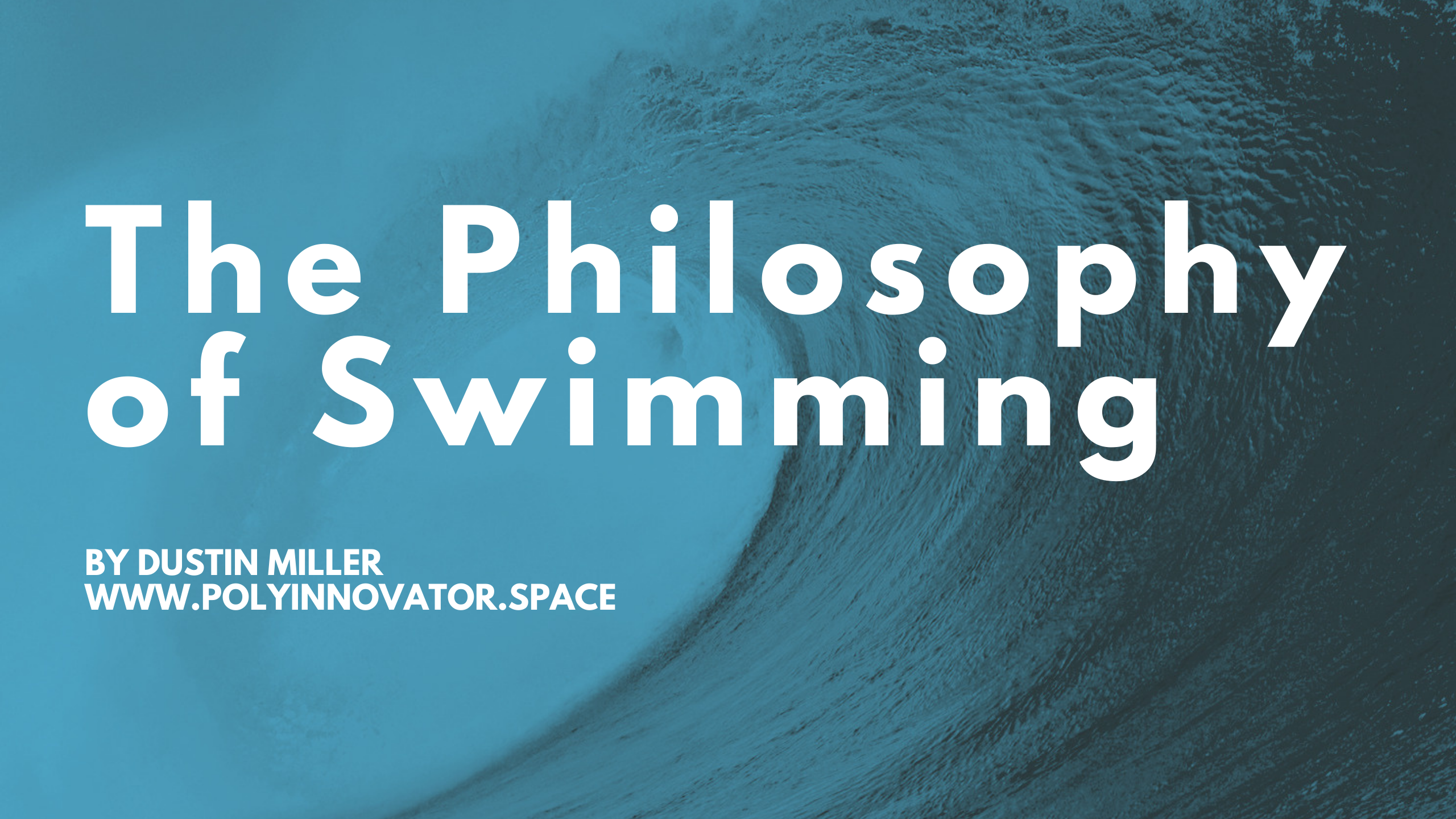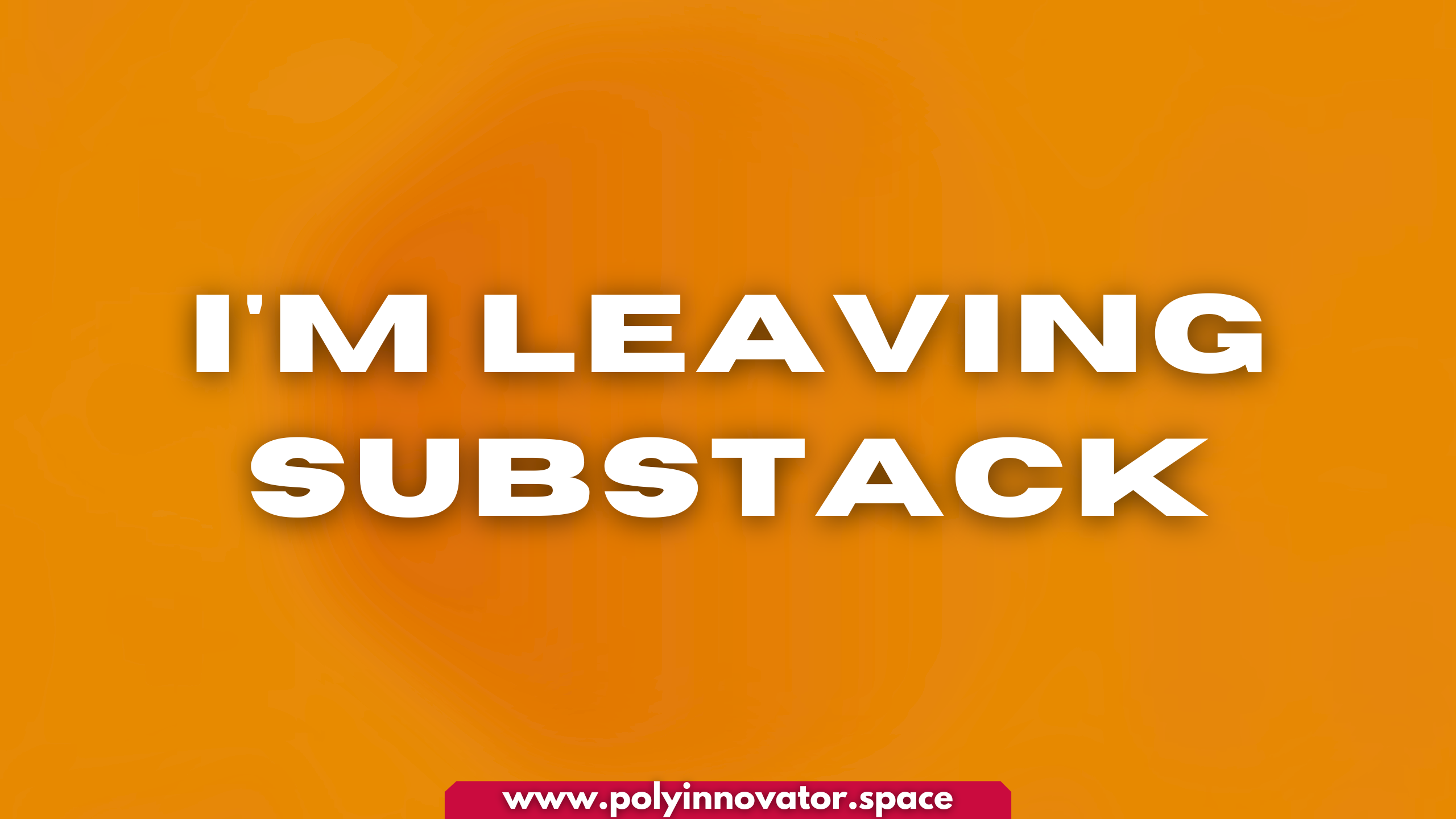The first in a trilogy of posts based around the "Three P's of Swimming", as well as a sort of sequel post to one I made a year ago. As of the three P's this one is often the most misunderstood. Perhaps that could be said about philosophy in general though. I am making this newsletter post to help you understand the WHY behind swimming, and the actions you take when doing the art.
The ideology behind it all is the why behind the actions, why do we do it in a certain way, why do we need to swim at all, and why is breathing not as important as you might think?
Why is Swimming an Art?
When you do the actions they allow movement in the water, a domain outside of our normal life. Unless you live on an island, or are like me and worked in a pool half of your life. In cases like that then you adapt well, in fact some populations around the world have developed unique lungs or kidneys to be able to stay under water for longer.
Swimming is an act, and every time you do that act it is different. Every single attempt, or even success, it is all a new experience each time. When you frame it like that then you have to make sure you prepare yourself mentally first each time. It doesn't let you only work half way on it, and if you prepare well then you're more likely to succeed. I always say how you start determines how you swim, for example your glide (pushing off the wall).
Often times it is not about getting from point A to point B, but how you get there. The how you get there starts to expand into the why you gotta do the movements in a certain way. So that YOUR how is improved in the long run.
Physical actions as a manifestation of your art.
As I said the movement is an art, a beauty of physical acts, and if you were to watch a swimmer do their movement you'll see the fluidity of the actions. The hydrodynamics of their arms and legs, and overall see that it is akin to ballet in the beauty of movement.
As you learn to swim, then you refine your strokes, and each time you try you'll get a chance to get better and better.
Meaning when you do that distance from point A to point B, over and over again, then after 10 times/20 times/ even 100 times; You will garner the practice needed to refine your strokes, breathing, and overall swimming form.
What is the point of all this?
How does philosophy come into play with swimming you may ask? Sure the beauty of it is great and all, but that is simple like looking at a pretty flower. No, for the philosophy has helped more people learn to swim in my experience far more than that how or what.
Out of the three swim lessons I am currently teaching right now, ALL of them have needed to learn the WHY behind our actions, and isn't always the case. Some people need to know the how and physical steps, and others who know very little to nothing about swimming need to learn what any of it means or is. Such as the term strokes or actual basic terminology.
Some folks learn the what, others the how, and others still need to learn the why behind the information. I've found that EVERYONE needs all three, but each person has their main "P" to learn from. That also often changes over time as well.
Finding your flow
By discovering which "P" impacts you the most, then that is what is going to accelerate your learning ten fold. It is like shining a light on the dark areas of your lack of knowing. That is why having a coach is so helpful, in any subject, as they can most likely tell you what area you are missing in. When I teach a new student I spend the first day discovering what they are looking for, and what they need to learn overall too.
Oftentimes as of late I've been doing it so long that I start teaching them within the first lesson, as it takes me much less time now to figure it out. If you are learning by yourself that is fine, and I hope these posts help you gain some progress.
The best thing to do would be to think about where you are at, and discover if it is the why, how, or what that is most crucial to your learning at this moment.


Disclaimer:
This is advice for people to level up their swimming, or perhaps get started in the first place. While you swim you should make sure you are doing so in a public facility with a lifeguard on duty for safety.
![Official Website for Dustin Miller PolyInnovator [LLC]](https://polyinnovator.space/content/images/2025/03/polyinnovator-logo-2024.png)












